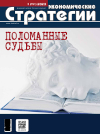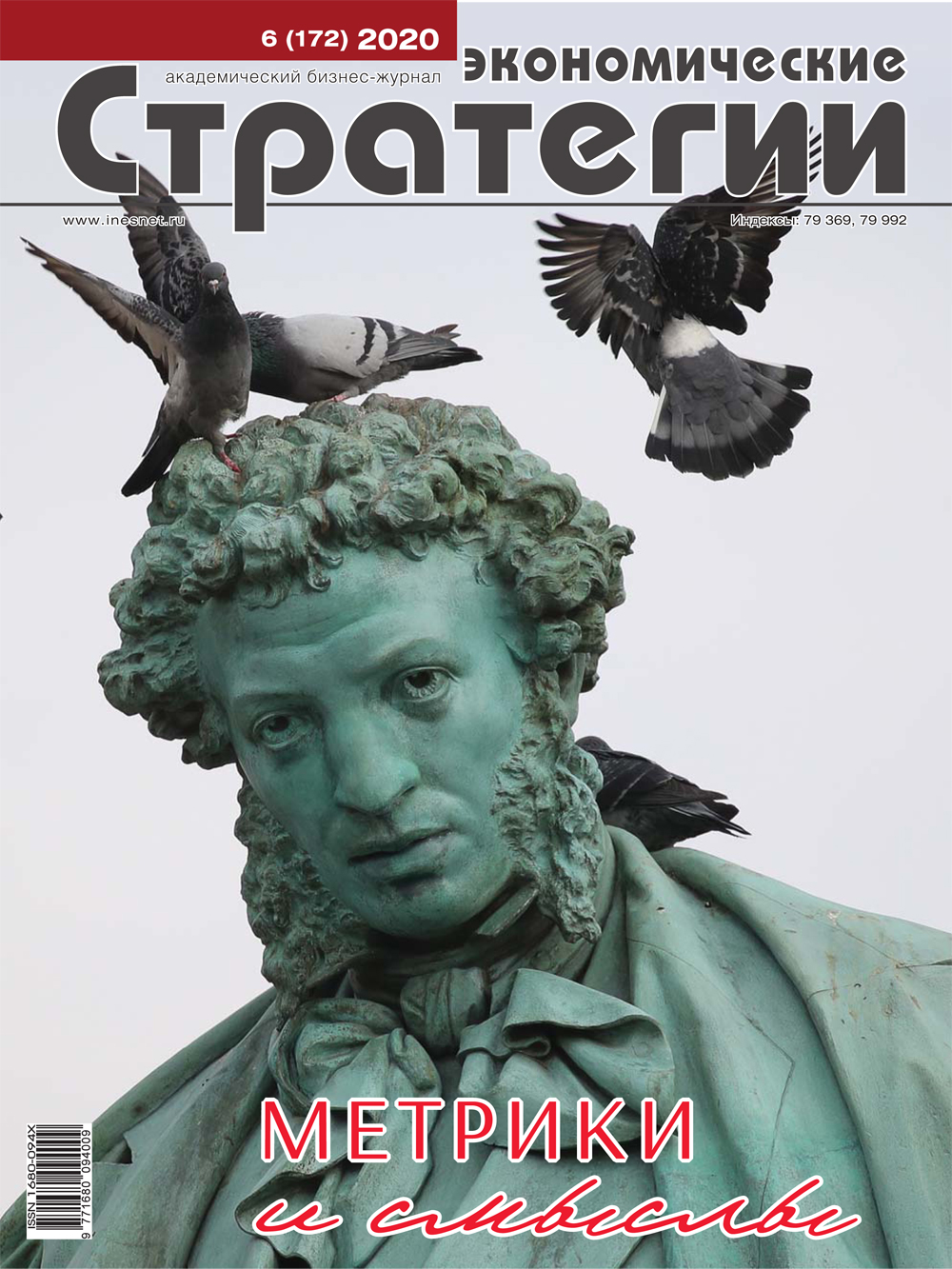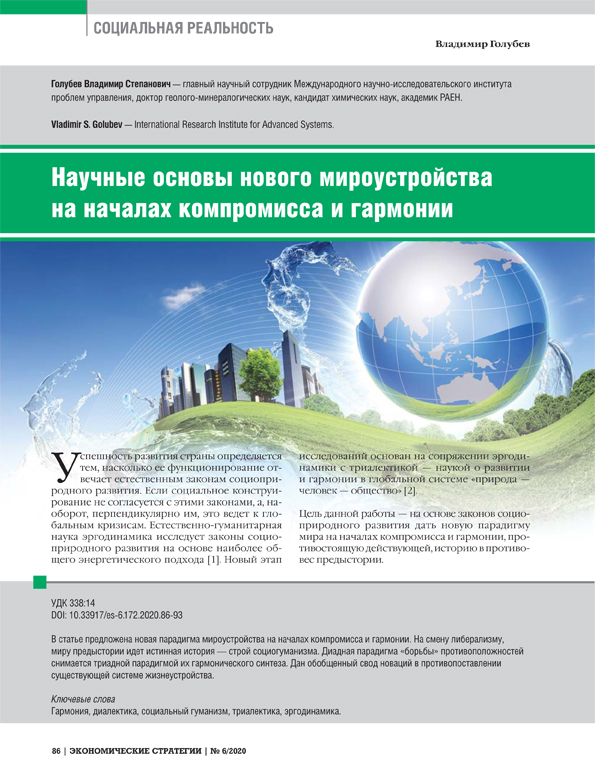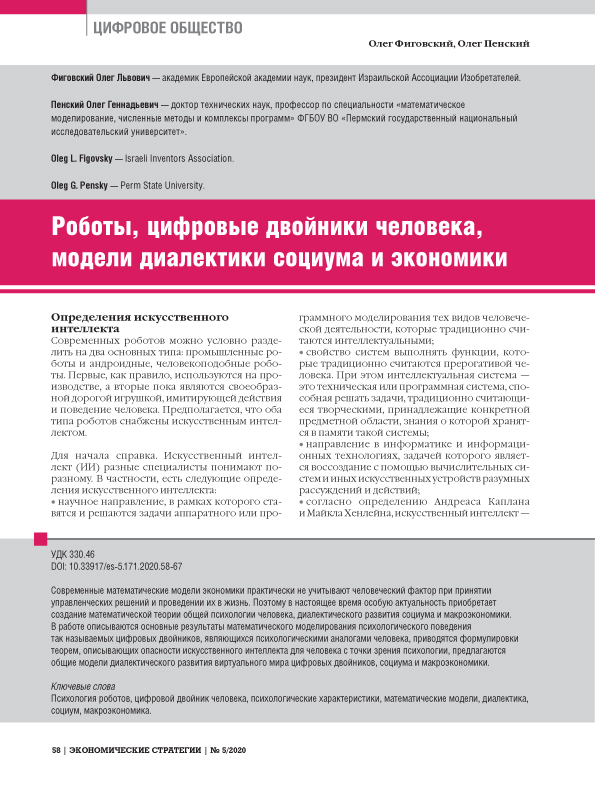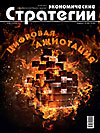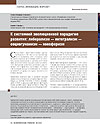Japan 2040: Dialectics of Transhumanism and Society of the Future
DOI: 10.33917/es-5.191.2023.78-93
Analysis of the essence, content and forms of the scenario state of Japan in 2040, reflected in the 11th Scientific and Technical Forecast of NISTEP in 2019, revealed a number of conceptual dialectical contradictions. They narrow down to the question of admissibility and expediency of changing a man’s nature in order to ensure his prosperous, safe, meaningful and happy existence. The author proposes for discussion a conclusion on inevitability of the transhumanization of a mankind on the scale of a single country (Japan) and the whole world, given the nature of the great challenges facing it. The possibility of keeping the historical development in a conditionally humanistic direction is noted, given the emphasis of social reforms in Japan, reflected in the 6th Basic Plan for scientific, technical and innovative development of the country, on building a society for the fullest realization and use of human intellectual potential.
References:
1. The 10th Science and Technology Foresight Scenario Planning from the Viewpoint of Globalization. Summary Report. Science and Technology Foresight Center, National Institute of Science and Technology Policy (NISTEP), Ministry of Education, Culture, Sports, Science and Technology (MEXT). September, 2015, available at: https://nistep.repo.nii.ac.jp/records/4491
2. Report on the 5th Science and Technology Basic Plan. Council on Science, Technology and Innovation. Cabinet office, Government of Japan, 2015, December 18, available at: https://www8.cao.go.jp/cstp/kihonkeikaku/5basicplan_en.pdf
3. Toward Realization of the New Economy and Society — Reform of the Economy and Society by Deepening of the “Society 5.0” — Outline. Keidanren (Japan Business Federation), 2016, April 19, available at: https://www.keidanren.or.jp/en/policy/2016/029_outline.pdf
4. Mamed’yarov Z.A. Doroga k “Obshchestvu 5.0” [The Road to Society 5.0]. Ekspert, 2018, no 44, available at: https://expert.ru/expert/2018/44/dorogak-
obschestvu-5_0/?ysclid=llm6l4drah852037971
5. Uemura N.M. “Obshchestvo 5.0” — vzglyad Mitsubishi Electric [Society 5.0: the View of Mitsubishi Electric]. Ekonomicheskie strategii, 2017, no 4, pp.
122–131, available at: https://www.inesnet.ru/wp-content/mag_archive/2017_04/es2017-04-122-131_Uemura_Noritsugu.pdf
6. Mitsubishi Electric predstavila platformu e-F@ctory rossiiskim kompaniyam [Mitsubishi Electric Presented the e-F@ctory Platform to Russian Companies]. OOO “Mitsubisi Elektrik (RUS)”, 2017, 20 iyulya, available at: https://ru.mitsubishielectric.com/ru/news/releases/local/2017/0720-a/pdf/170720-a_local_ru_ru.pdf
7. Overview of Japan’s Green Transformation (GX). GR Japan, 2023, January, available at: https://grjapan.com/sites/default/files/content/articles/files/
8. Green Transformation (GX). Main points. Tentative translation. Keidanren, 2022, May 17, available at: https://www.keidanren.or.jp/en/policy/2022/043_point.pdf
9. Kostyukova K.S. “Zelenaya” transformatsiya Yaponii i nekotorye kontury novoi energeticheskoi politiki strany [Elektronnyi resurs]. π-Economy, 2022, vol. 15, no 6, pp. 54–70, DOI: https://doi.org/10.18721/JE.15604


